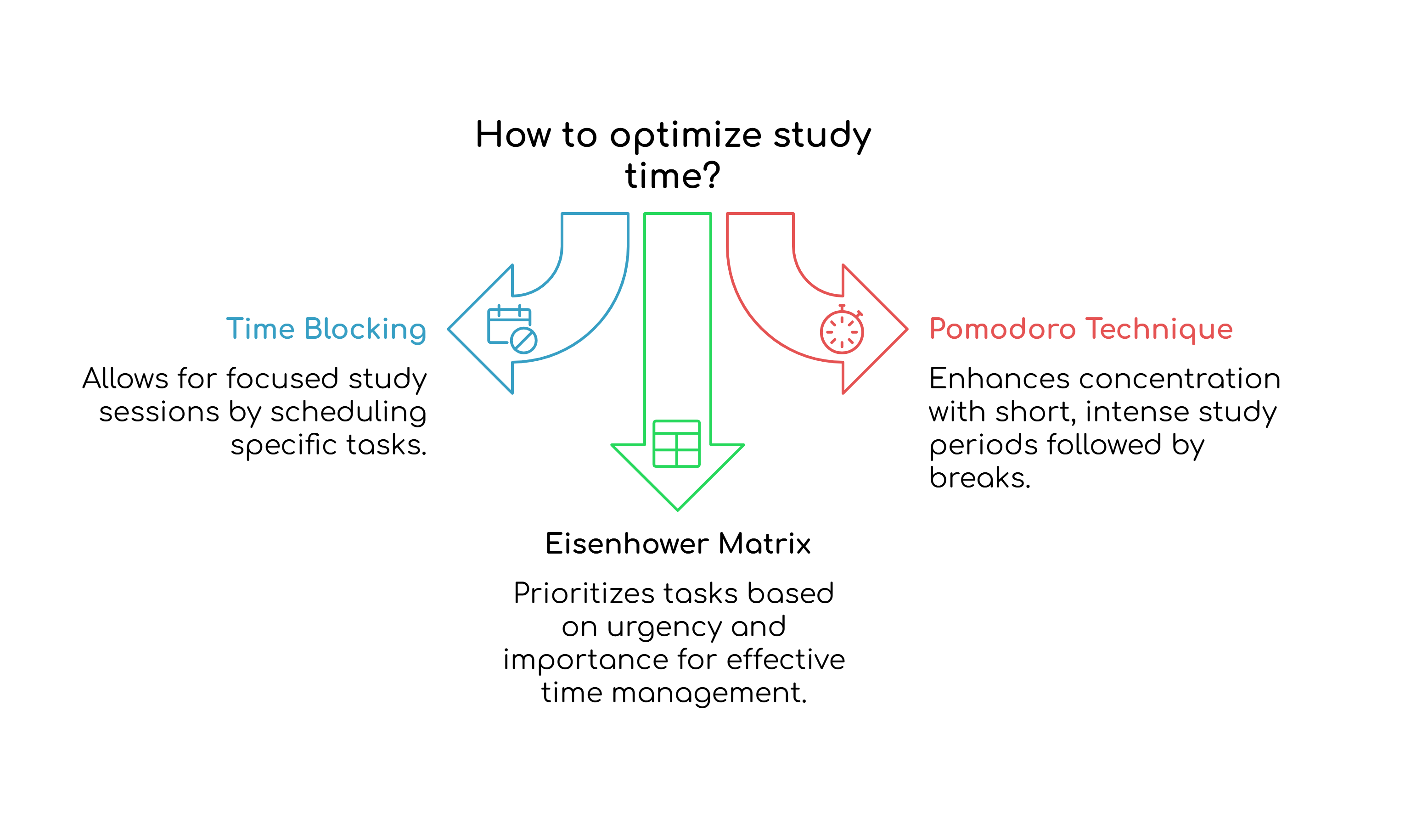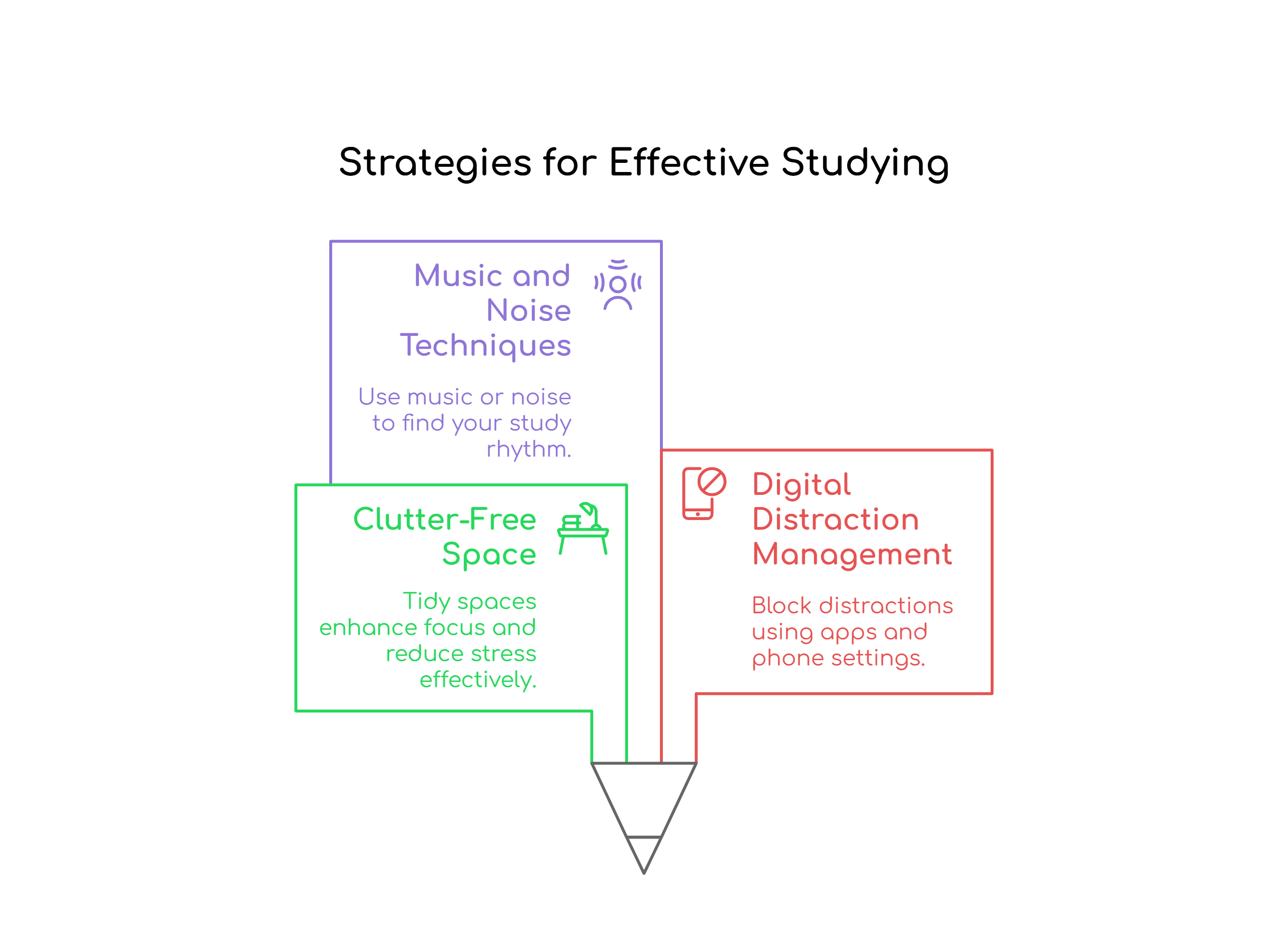Let’s be real for a second—studying can feel like an uphill battle. You sit down with the best intentions, textbooks open, laptop fired up… and somehow three hours later, you've reorganized your desk, labeled every folder, and watched six productivity videos on YouTube. Yeah, I’ve been there too.
But what if studying didn’t have to be so exhausting? What if you could actually get more done in less time—and feel good about it?
That’s where time blocking for studying comes in. It’s not some magical unicorn productivity hack. It’s a proven, practical method that helps you work smarter (not harder), stay focused, and cut through the overwhelm like a boss.
Let’s dive into how it all works—and how you can use it to totally level up your study game.
Time Management: Making Every Minute Count
Before we even get to time blocking, we need to talk about time management. Because let’s be honest—if your daily schedule looks like a chaotic mix of random study spurts and endless scrolling, you’re setting yourself up for burnout.
So, how do you start using your time wisely?

Creating a Study Schedule That Works
Here’s a secret: schedules only work if they work for you. That means building a routine around how you study best—whether you’re a night owl, morning person, or somewhere in between.
Time blocking is all about planning your day in advance by assigning specific time slots for specific tasks. You’re literally “blocking out” time to focus deeply on just one thing—no multitasking.
Here’s how you can start:
Step 1: Identify your peak focus hours.
Step 2: Break your study goals into chunks.
Step 3: Block time in your calendar (Google Calendar works great).
Step 4: Stick to it—but be flexible. Life happens.
The Pomodoro Technique: Work in Short Bursts
One of the best ways to stay fresh during study blocks? Use the Pomodoro Technique.
Here’s the gist:
Study for 25 minutes (no distractions—seriously, put your phone in another room).
Take a 5-minute break.
Repeat 4 times, then take a longer break (15–30 minutes).
It keeps your brain engaged and actually makes study time fly by.
Prioritizing Tasks with the Eisenhower Matrix
Not all tasks are created equal. That's where the Eisenhower Matrix comes in—and no, it’s not as intimidating as it sounds.
Break your tasks down into four categories:
Important & Urgent: Study for tomorrow’s final.
Important but Not Urgent: Review notes from last week.
Urgent but Not Important: Replying to texts.
Neither: Scrolling TikTok (you know it’s true).
Focus your time blocks on categories 1 and 2. Trust me, it makes a huge difference.
Boosting Focus & Eliminating Distractions
Want to know the quickest way to waste a study session? Try doing it in a messy, noisy, distraction-packed environment. (Hint: your bed doesn’t count as a desk.)

The Power of a Clutter-Free Study Space
Clear space, clear mind. It's not just a cheesy Pinterest quote—it's legit.
Studies actually show that a tidy environment boosts focus and reduces stress. So take 5 minutes to organize your desk before hitting the books.
Bonus tip? Add a plant. Seriously, greenery helps concentration. 🌱
How to Avoid Digital Distractions
Ever plan to study for 2 hours… only to lose 53 minutes on TikTok?
Here’s how to fight back:
Use apps like Forest or Freedom to block distracting sites.
Set your phone to Do Not Disturb or leave it outside your room.
Let friends know you’re in “study mode”—they’ll live.
Using Music & White Noise to Stay on Track
Some people need silence. Others thrive with background noise.
Try:
Lo-fi beats or study playlists
Brown noise (less harsh than white noise)
Instrumental movie scores (yes, being a study hero helps)
Experiment and see what gets you in the zone.
Memory & Retention Hacks
Working hard isn’t enough if you’re not remembering what you study. Luckily, there are smart, science-backed ways to boost long-term retention.
Active Recall: The Science-Backed Way to Remember More
Instead of passively reading or highlighting (we’ve all been guilty), try active recall. It’s simple:
Ask yourself questions—or use flashcards—to try and remember information without looking.
Why it works? It forces your brain to fetch info, strengthening the memory.
Spaced Repetition: The Art of Long-Term Learning
Want to beat forgetting? Don’t cram. Use spaced repetition—the technique of reviewing info at increasing intervals over time.
Apps like Anki and Quizlet make it super easy to build this into your time blocks.
Using Mnemonics & Mind Maps to Make Information Stick
Want to make studying fun? Get visual.
Mind maps help you connect ideas.
Mnemonics (like PEMDAS or “My Very Educated Mother Just Served Us Nachos”) make facts easier to recall.
Your brain loves patterns—use that to your advantage.
Study Smarter, Not Harder
Let’s face it—grinding for 8 hours straight doesn't mean you’ll ace the test. It’s all about how you study.
Why Teaching Someone Else Helps You Learn Faster
Ever try explaining a tough concept to a friend? You quickly find the gaps in your understanding—and fill them.
Teaching forces you to truly know the material.
Pro tip: chat with your pet and pretend you’re the professor. (No judgment here.)
The Benefits of Practice Tests & Self-Quizzing
Self-testing isn’t just for checking your work—it’s part of the work.
Find old tests online.
Quiz yourself.
Make it hard—it helps lock it in.
Note-Taking Strategies That Actually Work
Ditch the word-for-word copying.
Instead, try:
Cornell method: Divide your page for notes, questions, and summaries.
Mapping: Draw out how concepts connect.
Summarizing: Finish each study block by explaining what you learned in your own words.
Beating Study Stress & Staying Motivated
Burnout comes fast if you’re always stressed. Let’s keep the flame alive in a healthy way.
The Role of Sleep, Nutrition, & Exercise in Learning
Nope, all-nighters aren’t impressive—they kill focus and memory.
Here’s what helps:
7–9 hours of sleep every night
Protein-packed meals to fuel your brain
Exercise, even a 10-minute walk, to boost cognitive function
Think of your brain like a muscle—it needs more than just books.
How to Overcome Procrastination & Get Started
Starting’s the hardest part, right?
Try the 5-minute rule: Tell yourself you’ll study for just 5 minutes. That “tiny start” often snowballs into an hour of real work.
Trick your brain into taking action.
Small Rewards & Breaks: Keeping Yourself Motivated
Studying non-stop? Recipe for burnout.
After each time block, give yourself:
A quick snack
A YouTube video (set a timer!)
A short walk or stretch
Little wins keep you going.
Last-Minute Study Strategies
Okay, you waited too long. We’ve all been there. Now what?
Quick Revision Techniques for Cramming Smartly
When time’s tight, go for high-impact reviewing:
Make a quick one-page cheat sheet (even if you can’t use it, the process helps).
Skim summaries and bolded textbook sections.
Focus on active recall and practice questions.
How to Stay Calm & Confident Before an Exam
Pre-exam jitters? Totally normal.
Here’s how to stay grounded:
Focus on your breath—inhale for 4, hold for 4, out for 4.
Visualize success. Picture yourself nailing it.
Remind yourself: You’ve done the work.
Confidence isn’t magic—it’s practice.
Conclusion: Key Takeaways for Smarter Studying
To sum it all up:
Time blocking for studying helps you create structure and focus.
Use tools like the Pomodoro Technique, Eisenhower Matrix, and spaced repetition to study smarter.
Eliminate distractions, take care of your brain (yes, sleep matters), and approach learning like a skill you can build.
And most importantly? Be kind to yourself.
Studying doesn't have to be painful. It can be empowering—if you approach it the right way.
Now go block off some study time—and crush your goals. I’m rooting for you. 💪📚